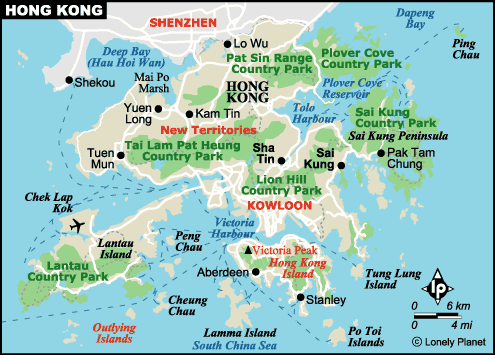The Geert Hofstede analysis
for Hong Kong is almost identical to that of other Asian countries.
Where Hong Kong differs dramatically is in their Uncertainty Avoidance
factors. Most Asian countries rank fairly high in this category,
however in Hong Kong they tend to be greater risk takers. The highest-ranking
factor is Long-term Orientation, which reflects their emphasis
on relationships.
Hong
Kong's Geert Hofstede analysis has Long-term Orientation
(LTO) as the highest-ranking (96) factor,
which is true for all Far East Asian cultures.
This Dimension indicates a societies' time perspective
and an attitude of persevering; that is, overcoming
obstacles with time, if not with will and strength.
(see Asian countries graph below)
Of note is Hong Kong's relatively low Uncertainty
Avoidance (UAI) Dimension ranking of only 29, compared
to an average of 63 for the Far East Asian countries.
This very low level of Uncertainty Avoidance is
the fourth lowest in the World, with only Denmark
(23), Jamaica (13), and Singapore (8) having lower
scores for this Dimension.
The
low Uncertainty Avoidance ranking indicates a
society that not only tolerates uncertainty and
a freedom of opinions, but uses this strength,
in the case of Hong Kong, to be a place where many
varying cultures and ideas can come together. Geert
Hofstede describes people in a culture with the
low UAI Dimension as, ". . . more phlegmatic
and contemplative . ."
Hong
Kong has an Individualism (IDV) ranking of 25,
second highest for Far East Asian countries,
behind Japan's 46 ranking, and compared to an average
of 24. This may be attributed, in part, the long
term British (IDV of 89) rule of Hong Kong and
the influence of European culture, which has an
average Individualism rank of 61. Hong Kong's Individualism
ranking indicates a high level of emphasis on a
Collectivist society as compared to one of Individualism.
The
low Individualism ranking is manifest in a
close and committed member 'group', be that a
family,
extended family, or extended relationships.
Loyalty in a collectivist culture is paramount.
The society
fosters strong relationships where everyone
takes responsibility for fellow members of their
group.
Hong
Kong's Power Distance score is 68 compared to
the other Far East Asian countries average of
60. This is indicative of inequality of power and
wealth within the society. This condition is not
necessarily subverted upon the population, but
rather accepted by the society as their cultural
heritage. More Details
Written
by Stephen Taylor - the Sigma
Two Group
Religion
in Hong Kong

*
WORLD FACTBOOK 2011
Hong
Kong has a number of local regions, although
many are based on the teachings of the ancient
Chinese philosopher Confucius (500BC).
Interview
on Hong Kong
(written
transcription)




